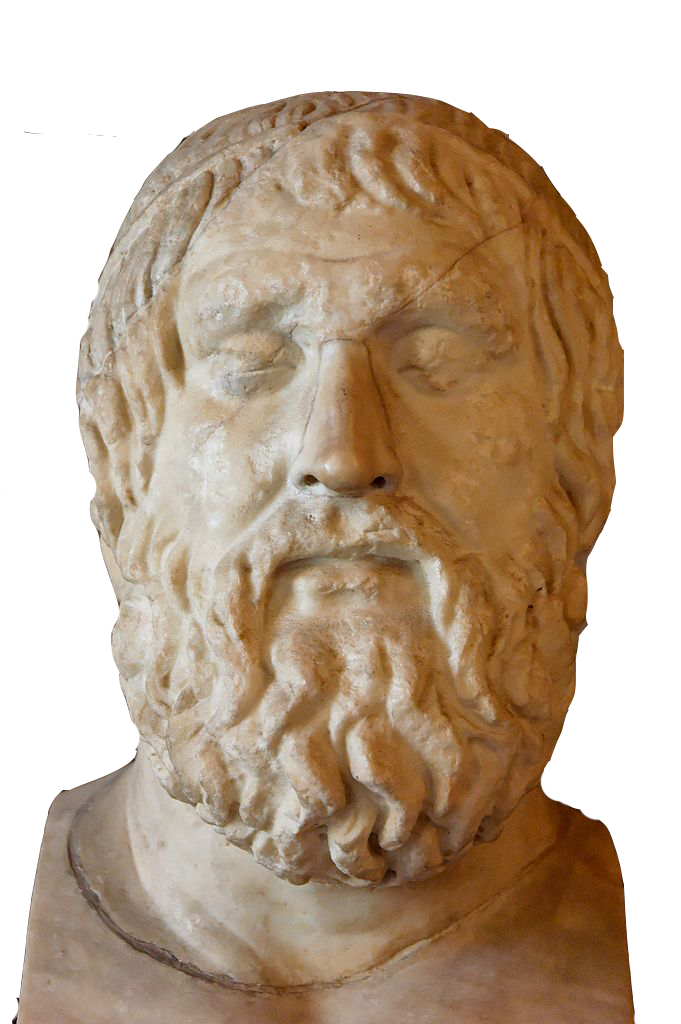Sophocles
 | Sophocles (c. 496/496 BC – c. 406/405 BC) was a Greek playwright whose work, along with that of Aeschylus and Euripides, define the genre of ancient Greek tragedy. He wrote over 120 plays, of which seven survive: Ajax, Antigone, Women of Trachis, Oedipus Rex, Electra, Philoctetes, and Oedipus at Colonus. He was the most celebrated Athenian dramatist for five decades, winning more dramatic competitions than his peers: he competed in 30 competitions and won 24; Aeschylus won 13 and Euripides won 4. His most famous works are those featuring Antigone and Oedipus, known as the Theban plays. He is known for his innovations in dramatic structure and the development of his characters. He was credited by Aristotle with the introduction of scene-painting. His work evolved through three stages. In the first he plainly imitated Aeschylus; during the second his unique style appears; the third shows the revelation of character through natural diction and expression of feelings. Born to a wealthy family in Colonus, Attica, he was highly educated and well connected. During the time of Pericles he served as one of Athens’ treasurers and was later elected one of ten generals. His long life spanned a period between the Persian Wars on one end and most of the Peloponnesian War in his old age, during which he served on a commission investigating the loss of Greek forces in an invasion of Sicily. He received many invitations to attend the courts of foreign rulers, all of which he declined. |
Antigone
Antigone is the third and last of Sophocles’ Theban plays based on the legend of Oedipus and Jocasta..
$9.99
Oedipus at Colonus
Oedipus at Colonus is the second of Sophocles’ Theban plays and the last to be written, completed ju..
$9.99
Oedipus Rex
Oedipus Rex is the first of Sophocles’ Theban plays and is regarded by many as the masterpiece of Gr..
$9.99
Showing 1 to 3 of 3 (1 Pages)



